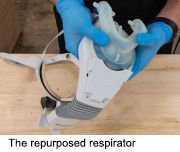
Today’s youngsters are as socially skilled as previous generations, despite concerns about their heavy use of technology, like smartphones and social media, new research shows. The researchers compared teacher and parent evaluations of more than 19,000 U.S. children who started kindergarten in 1998 — six years before Facebook appeared — with more than 13,000 who… read on >




























